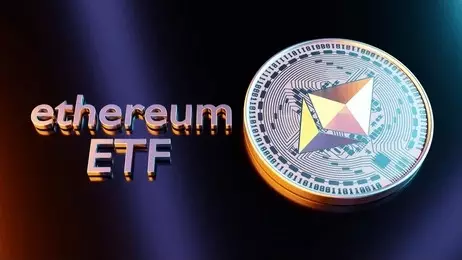The Securities and Exchange Commission (SEC) is expected to adopt a similar approach to approving spot Ethereum exchange-traded funds (ETFs) as it has with spot Bitcoin ETFs. According to Standard Chartered Bank analysis, May 23 is the anticipated date for receiving approval for these pending applications. This article analyzes the factors supporting this prediction and the potential implications for the Ethereum market.
Standard Chartered Bank’s head of forex and digital asset research, Geoffrey Kendrick, believes that the SEC will grant the approval of spot Ethereum ETFs on the specified date of May 23. This date is considered equivalent to January 10, the date on which Bitcoin ETFs were approved. Kendrick suggests that if Ethereum follows a similar trajectory to Bitcoin in the run-up to ETF approval, its price could surge to as high as $4,000.
One of the key arguments supporting the approval of spot Ethereum ETFs is the SEC’s classification of ether as a non-security in its legal actions against crypto companies. This classification strengthens the case for approving ETFs based on Ethereum.
The fact that Ethereum is listed as a regulated futures contract on the Chicago Mercantile Exchange (CME) adds further weight to the expectation of SEC approval for spot Ethereum ETFs. The regulatory recognition of Ethereum as a legitimate asset class enhances its chances of receiving ETF approval.
Scott Johnsson, a financial lawyer, provides insights into the potential roadmap for Ethereum ETFs. While long-term approval is highly likely, Johnsson suggests short-term delays due to ongoing regulatory actions involving securities exchanges like Coinbase and Binance.
Johnsson draws parallels between the approval process for Bitcoin ETFs and the potential process for Ethereum ETFs. Bitcoin’s journey to approval spanned seven years and involved various steps and disapprovals. However, Johnsson believes that the timeline for Ethereum is compressing, with applications open for both futures ETFs and spot ETFs. Some prerequisites, such as Step 3, may no longer be necessary for spot ETF approval.
Johnsson highlights two key factors that impact the SEC’s current approach to approving future ETFs, including Ethereum. Firstly, he discusses the significance of correlation analysis, particularly in light of the Grayscale ruling. Secondly, he emphasizes the SEC’s viewpoint, as indicated by the recent BTC approval order. This viewpoint considers correlation with the CME, a lengthy sample period, intra-day trading data, and consistency. The correlation analysis for Bitcoin falls within an acceptable range, and it is expected that Ethereum will soon meet this threshold.
Once the necessary correlation level is achieved, Johnsson believes that approval for spot Ethereum ETFs will likely follow shortly after. May is the month that industry analysts and experts expect this approval to occur, unless significant legal developments occur.
Overall, the predicted approval of spot Ethereum ETFs by the SEC is seen as a matter of time, assuming no major legal shifts. The potential approval of these ETFs comes with expectations of a positive impact on the Ethereum market. As of now, Ethereum is trading at $2,370, reflecting an increase of more than 2% in the past 24 hours and over 7% in the past seven days, following Bitcoin’s lead.
Featured image from Shutterstock, chart from TradingView.com
Disclaimer: This article is for educational purposes only and does not represent the opinions of NewsBTC on investment decisions. Conduct your own research and accept the risks involved in investing. Use the information provided here at your own discretion.

